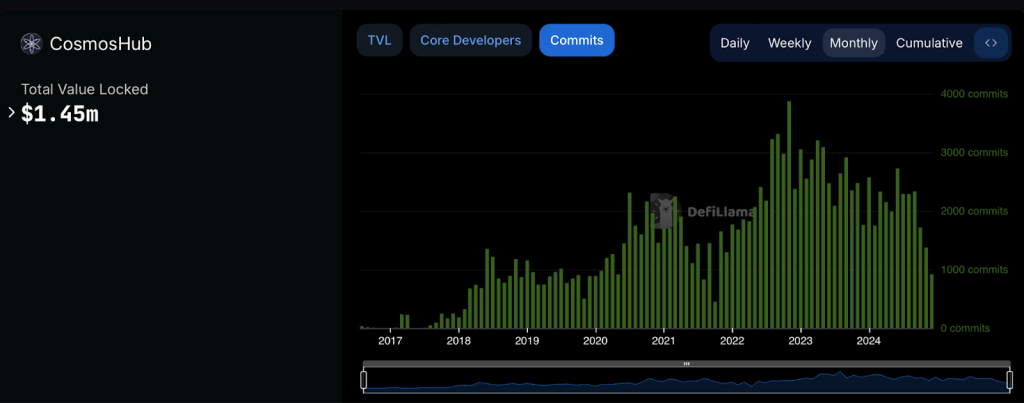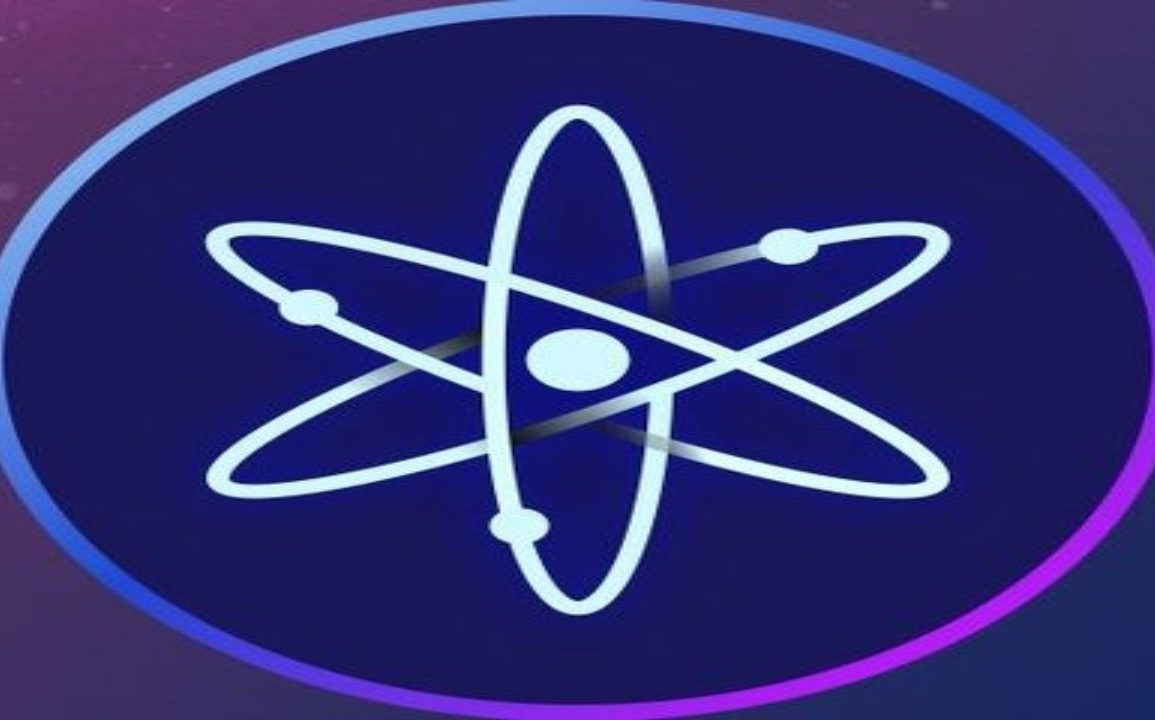- Summary:
- The audits done in collaboration with Zellic will play a fundamental role in the Cosmos Hub ecosystem and enhance the network’s security.
Cosmos Hub, the flagship product of the Cosmos interchain ecosystem and the largest appchain by market capitalization, has significantly grown in developer and on-chain activity since its launch in 2019.
The latest statistics from DeFi Llama show that there have been at least 1500 to 4000 commits per month for the past two years, as well as a solid number of core developers consistently contributing to the appchain.

Image source: DeFi Llama
At the core, this appchain focuses on interoperability and routing through the Inter-Blockchain Communication (IBC) protocol to enable seamless communication between independent blockchains within the Cosmos network. This value proposition is what has positioned it as a leading appchain; its native token $ATOM currently ranks 54th in market capitalization, with a fully diluted valuation of $3.3 billion.
More importantly, Cosmos Hub’s governance-mandated DAO, Atom Accelerator (AADAO), recently approved a strategic grant worth $440,000 to engage Zellic as a long-term audit partner. A move that is set to enhance the security of the Cosmos Hub ecosystem by addressing the lack of formal audits of some of Cosmos Hub’s key dependencies, including Cosmos SDK and CosmWasm.
Formal Security Audits for the Cosmos Hub
The grant is a result of a Request for Proposal (RFP) run by AADAO to enhance Cosmos Hub’s security and integrity.
Notably, this is not the first time Zellic has been engaged to perform audits for the Cosmos Hub. The blockchain vulnerability research firm has previously audited Cosmos Hub’s Inactive Validator Set, Permissionless ICS and Liquid Staking Module as well as other notable projects within the Cosmos ecosystem such as Celestia, Injective, Penumbra, Osmosis, Initia and Berachain.
However, in this new engagement, Zellic will be tasked to conduct more comprehensive security audits of the Cosmos Hub features and upgrades over a period of 24 months. The initial work is set to begin in the first half of 2025, focusing on Gaia (the binary of the Cosmos Hub), alongside key dependencies that will be prioritized based on risk.
“While Zellic has been tasked with auditing our key dependencies in 2025 H1, we expect them to support the new Cosmos Hub engineering team with audits of feature launches from the second half of 2025.” reads the announcement.
The grant is also expected to reduce the amount Cosmos Hub has been spending on audits. Over the past one and half year, the project has allocated $344.2k on one-off feature audits that didn’t cover Cosmos Hub’s dependencies; an average of $27.5 per audit week.
With this grant, AADAO is engaging Zellic on a 20-audit-week contract, offering a 20% lower cost per audit week compared to past expenditures. Additionally, any unused audit weeks will roll over for up to 24 months.
Conclusion
As the Cosmos Hub ecosystem continues to grow, the adoption of formal audits in collaboration with Zellic is expected to play a fundamental role in enhancing the network’s security, reduce the risk of exploits and safeguard the staked $ATOM tokens.
This will likely be a game-changer on several fronts such as attracting more projects and developers to the Cosmos Hub ecosystem, increasing the value and utility of the $ATOM native token. It will also strengthen the long term stability of the Cosmos Hub by protecting both the assets within its ecosystem and reputation as a leading appchain focused on interoperability.


